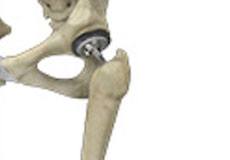
Musculoskeletal trauma refers to injuries of the muscles, tendons, ligaments, joints, nerves, blood vessels, or related soft tissues that most commonly occur during sports, exercise or any other physical activity. Trauma may be a result of accidents, poor training practices or with use of improper gear. Injuries may also be caused when an individual is not medically fit or because of insufficient warm up and stretching exercises.
Some of the common injuries, secondary to trauma, include:
- Sprains and strains
- Swollen muscles
- Knee injuries
- Fractures
- Joint dislocations
- Pain along the shin bone
- Achilles’ tendon injuries
Acute injuries are the sudden injuries that occur during playing or exercising and include sprained ankles, strained backs, and fractured hands. Individuals with acute injuries may present with signs such as,
- Sudden, severe pain
- Swelling
- Unable to place weight on lower limb, on leg, knee, ankle or foot
- Tenderness in an upper limb, may be in arm, elbow, wrist, hand or fingers
- Unable to move a joint as normal
- Extreme limb weakness
- Visible dislocation of bone or joint
Chronic injuries happen from overusing one part of the body for playing a sport or exercising, mostly when practiced for a longer duration. Signs of chronic injury include:
Pain when performing an activity
- Swelling
- Dull ache when at rest
Regardless of the type of injury, acute or chronic, avoid working through the pain of an injury. On experiencing pain from a particular movement stop playing or exercising. Continuing the activity may worsen the condition. Some injuries may require immediate medical intervention while others can be self-treated.
Consult your doctor if:
You experience severe pain, swelling, or numbness
- You can’t tolerate any weight on the area
- Pain or dull ache of an old injury
- If pain is accompanied by swelling or if you feel the joint as unstable
All injuries need time to heal so proper rest helps the process. So, you must also take time to rest after an injury. Electro-stimulation, cold packs, heat packs, ultrasound treatment and massage are the other therapies to help the healing process.
Injuries not responding to conservative management will require surgery. The type of surgery will depend on the location and extent of trauma.





